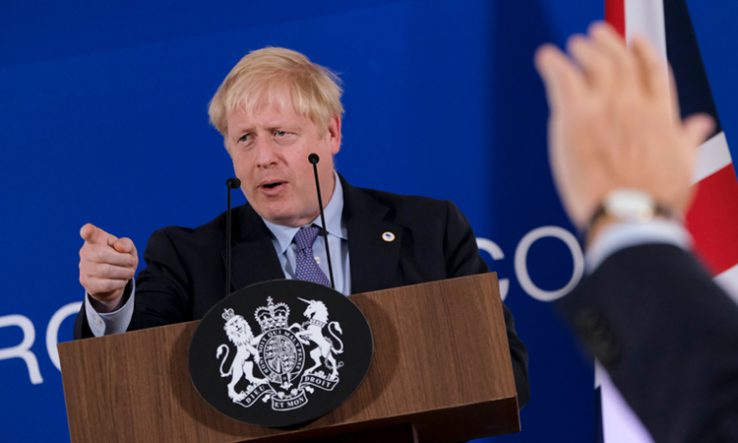
Image: Alexandros Michailidis, via Shutterstock
Conservative party leader’s ambitious £18bn promise branded ‘election window-dressing’
Boris Johnson has been accused of “election window-dressing” and “empty rhetoric” amid growing scrutiny of his pledge to double R&D spending.
During a visit to the London Electric Vehicle Company factory in Coventry last week, Johnson promised to “double funding for research and development to £18 billion in the next parliament—the biggest ever increase in support for R&D”.
The Conservatives claim this would be the fastest increase in domestic public R&D spending in British history.
Science minister Chris Skidmore welcomed the commitment, describing it as “a massive transformational moment to invest in emerging technologies for future growth”.
But it has prompted a mixed reaction in the research community.
“This appears to be election window-dressing because the announcement appears to be a restatement of the ambition to substantially increase R&D investment over the 10 years from 2017-2027,” said Stephen Curry, professor of structural biology at Imperial College London
There are “serious concerns about the capacity of the government to do the work needed to ensure that the increased investment is spent wisely”, said Curry. “I am unconvinced that [Johnson’s] ‘vision’ for UK science is anything more than empty rhetoric.”
The Conservatives have a long-standing commitment for total R&D spending to rise to 2.4 per cent of GDP—up from its current level of 1.7 per cent.
The £18bn figure cited by Johnson would not be reached until the end of the next parliament, in five years’ time, the Conservatives have said.
In terms of GDP, the amount of public expenditure on R&D would rise from 0.43 to 0.62 per cent.
The 2.4 per cent target would therefore only be reached if there were a surge in R&D investment by the private sector.
David Price, vice-provost for research at University College London, welcomed the government’s commitment to double R&D spending, but said “we must wait to see if the UK exchequer is able to deliver on this scale in the years to come”.
Johnson’s announcement may be a post-Brexit plan to redirect contributions to EU R&D back to the UK, according to Johnny Rich, chief executive of the Engineering Professors’ Council.
“If that’s the case though, it’s going to be a significant real-terms cut because we receive so much more than we spend,” he said. “If this is indeed an actual increase in funding—and that isn’t clear—coupled with the impact of Brexit on UK R&D, it’s not going to be sufficient to plug the hole in the bottom of the boat.”
The Engineering Professors’ Council claims that EU collaboration multiplies the value of investment by a factor of eight. “Whatever increase the government may be proposing, it’s not eight times more than now,” Rich said.
Greg Falconer, director of innovation policy for the National Endowment for Science, Technology and the Arts, described the pledge as “a momentous increase” that would take total public R&D spending above the £14bn a year spent on policing.
“Such a large increase will need to be carefully planned so as not to exacerbate imbalances in the system,” he warned. Too much funding goes to the south-east and on basic research, with too little for innovation, Falconer argued. “Any new government will need to make sure the benefits are spread across UK sectors and places.”
According to the Conservatives, extra R&D funding would be spent in areas such as advanced maths research, a national space strategy, nuclear fusion, investment in the National Institute for Health Research, and innovations to tackle climate change.
Around £800m would be spent on creating a British Advanced Research Projects Agency, to fund high-risk, high-reward research, and there would also be a Challenge Led Innovation Procurement fund, to incentivise private sector R&D investment.
The spending increase would guarantee the replacement of all EU R&D after Brexit, including funding for universities, the Conservatives claim.
Giles Wilkes, specialist partner at consultancy Flint Global, and a former special adviser on industrial strategy to prime minister Theresa May, said: “The research community should be delighted. Never look a gift horse in the mouth.”
However, he added that the “Treasury and others will have serious questions about whether the money will be well spent”. And, he said, this area of spending is vulnerable to cuts, having “little direct salience with the voting public”.
Wilkes explained: “The sums here might easily have solved the UK’s social care crisis for a long time, and those sorts of pressures are going to rise. At some date a future chancellor will be looking for cuts, and R&D will look like an easy one—particularly if the money has been spent in a rush, leaving behind waste.”